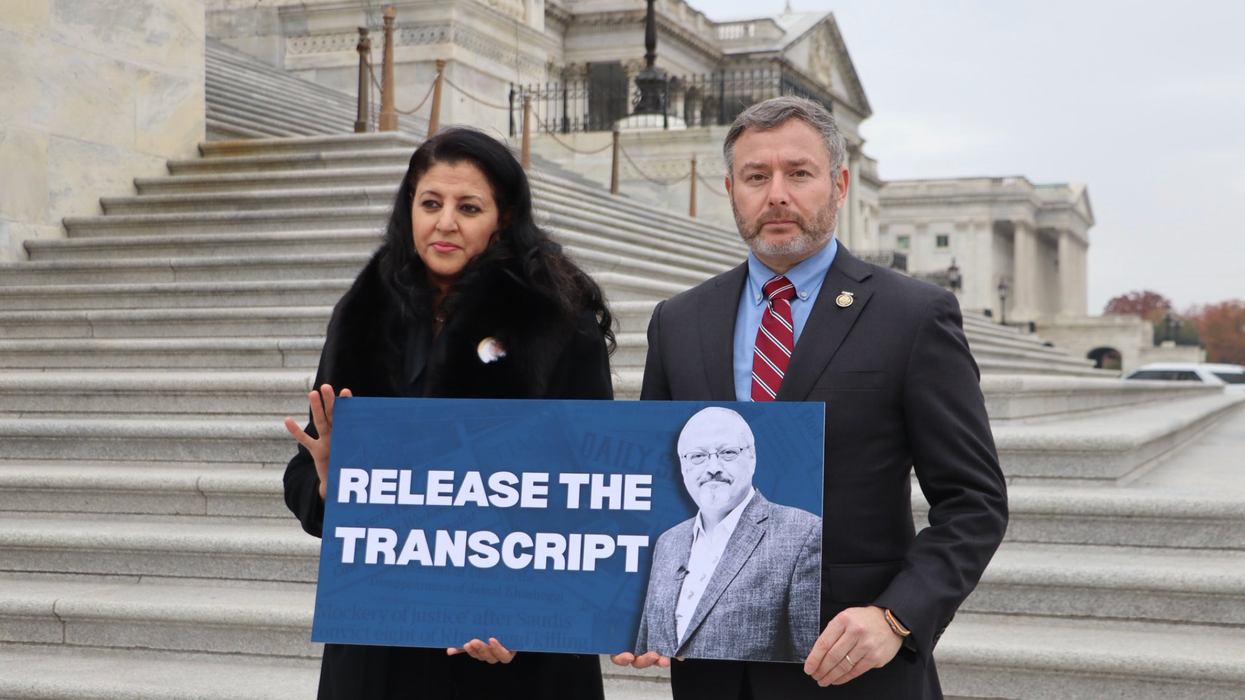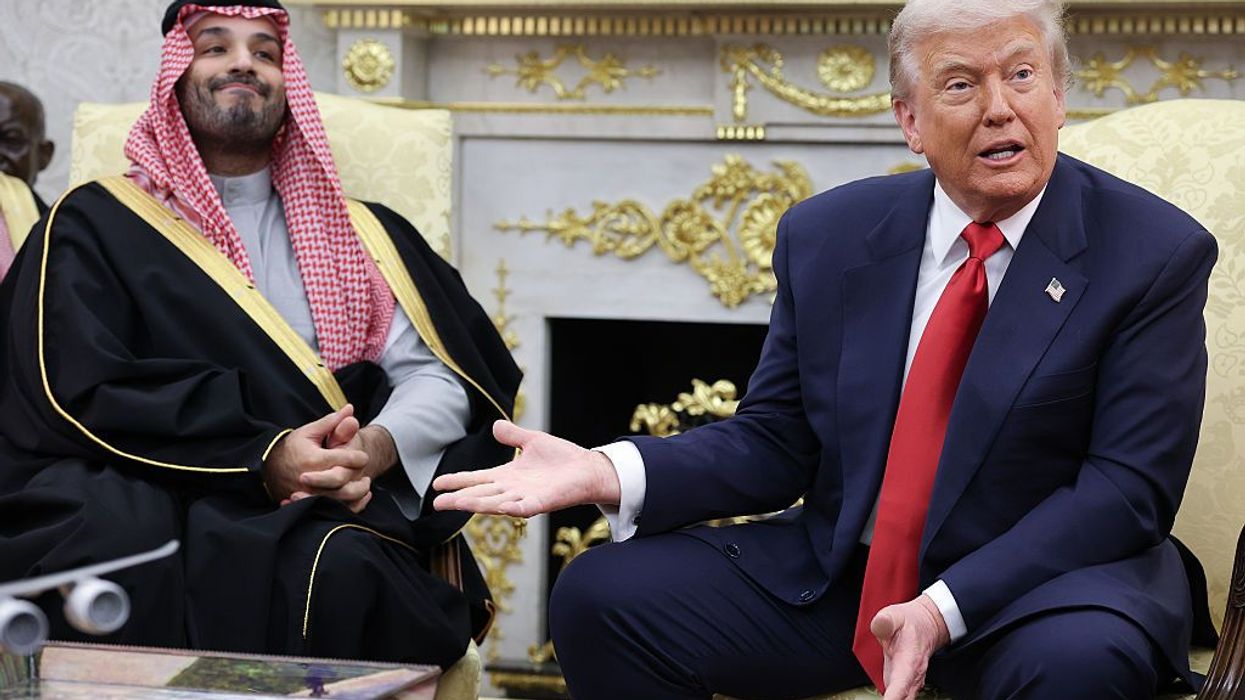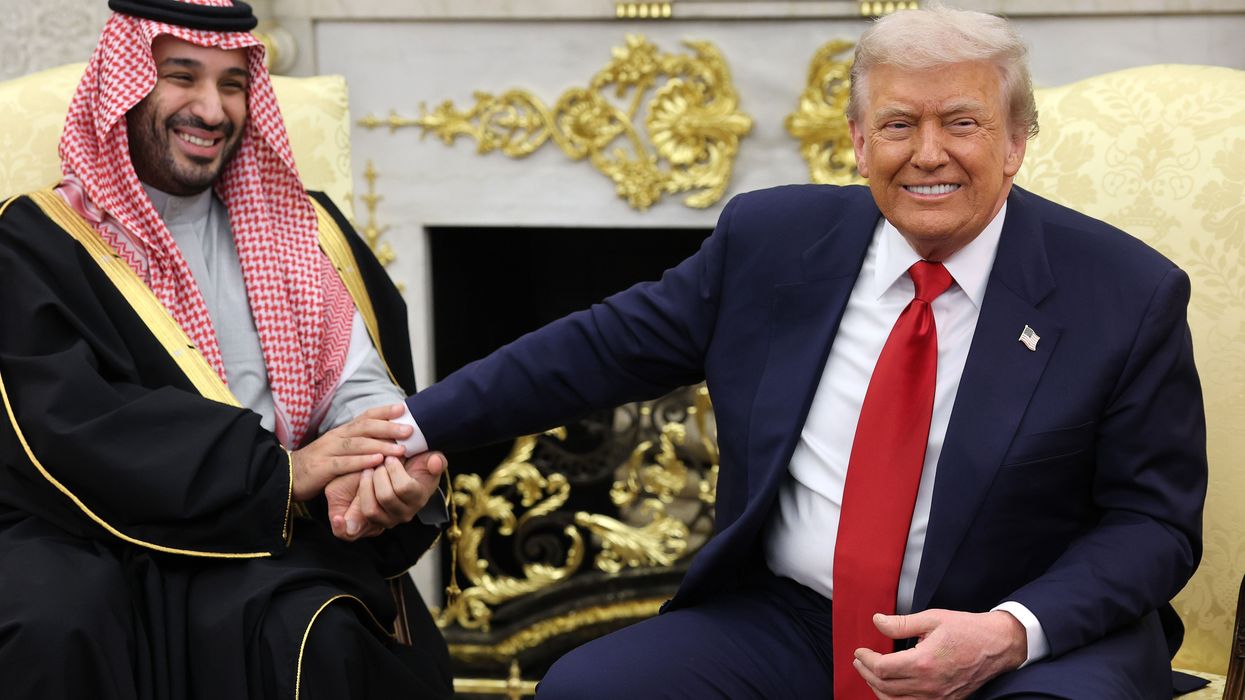Calls Grow to Release Transcript of 'Highly Disturbing' Trump-MBS Call After Khashoggi Murder
Rep. Eugene Vindman—who was a White House national security lawyer at the time of the 2019 call—said it “would shock people if they knew what was said.”
The widow of Jamal Khashoggi on Friday joined Democratic members of Congress in urging President Donald Trump to release the transcript of a phone conversation between the US leader and Saudi Crown Prince Mohammed bin Salman following the journalist's 2018 kidnapping and gruesome murder by Saudi operatives.
Speaking outside the US Capitol in Washington, DC flanked by Democratic members of Congress including Reps. Eugene Vindman of Virginia and Jamie Raskin of Maryland, Hanan Elatr Khashoggi said she is seeking the lawmakers' help "to get the contents of the conversation between President Trump and MBS to get the truth."
“Try as much as you can to save the democratic freedom of America," Khashoggi implored the audience at the gathering. "Do not be a copy of the Middle East dictator countries. We look to America as our role model of modern civilization. Please maintain it.”
Jamal Khashoggi's widow, Hanan Elatr Khashoggi: "I'm seeking the help of Congressmen Vindman and Jamie Raskin, to get the transcript of the conversation between President Trump and Crown Prince MBS to understand the truth."
[image or embed]
— The Bulwark (@thebulwark.com) November 21, 2025 at 8:44 AM
Vindman urged the declassification and release of what he called a "highly disturbing" 2019 call between Trump and MBS—who US intelligence agencies say ordered Khashoggi's murder—the contents of which the congressman claimed “would shock people if they knew what was said.”
At the time of the call, Vindman was serving as a lawyer on Trump's National Security Council, where his duties included reviewing presidential communications with foreign leaders.
"All week, I’ve urged the president to release this transcript," Vindman said during his remarks at Friday's press conference. "Yesterday, I sent him a letter with 37 of my colleagues demanding its release. We will continue pressing until the American people get the truth.”
"Given President Trump’s disturbing and counterfactual defense of Saudi Crown Prince Mohammed bin Salman this week, I felt compelled to speak up on behalf of the Khashoggi family and the country I serve," he added.
On Tuesday, Trump warmly welcomed the crown prince to the White House, calling him a "respected man," designating Saudi Arabia a major non-NATO ally, and announcing the planned sale of F-35 fighter jets to the kingdom.
Trump also threatened an ABC News reporter who attempted to ask MBS about his role in Khashoggi's murder, calling the victim "somebody that was extremely controversial" and whom "a lot of people didn’t like."
“Whether you like him or didn’t like him, things happen," Trump said as MBS smugly looked on, dubiously adding that the crown prince "knew nothing about it."
Responding to Trump's comments, Khashoggi's widow said during Friday's press conference that “there is no justification to kidnap [Khashoggi], torture him, to kill him, and to cut him to pieces."
"This is a terrorist act," she added.
Khashoggi—a Washington Post columnist and permanent US resident—vanished in October 2018 while visiting the Saudi consulate in Istanbul. Turkish officials said he was attacked, suffocated to death, and dismembered with a bone saw inside the consular compound. One Turkish investigator said Khashoggi was tortured in front the Saudi consul-general and dismembered while he was still alive.
Saudi officials initially denied that Khashoggi died in the consulate but later confirmed his death, claiming it resulted from a “fistfight” gone wrong. In 2019, a Saudi court sentenced five people to death and three others to prison terms in connection with Khashoggi’s murder. However, the death sentences were later commuted.
The Central Intelligence Agency concluded that MBS ordered Khashoggi's murder. Saudi officials refuted the CIA's findings. Trump also expressed skepticism at his own intelligence agency's conclusion, which came as the US was selling or seeking to sell billions of dollars worth of arms to Saudi Arabia despite its rampant war crimes in Yemen.
Hopes that former President Joe Biden would take a different approach to Saudi Arabia over war crimes and Khashoggi's murder were dashed as his administration continued selling arms to the kingdom and argued in federal court that MBS should be granted sovereign immunity in a civil case filed by the slain journalist's widow.
Trump has sought closer ties to Saudi Arabia during his second term as he courts up to $1 trillion in investments from the kingdom and works to broker diplomatic normalization between Riyadh and Israel.
The New York Times reported Monday that the Trump Organization—which is run by the president’s two eldest sons—is “in talks that could bring a Trump-branded property" to Saudi Arabia, raising concerns about possible corruption and conflicts of interest.


